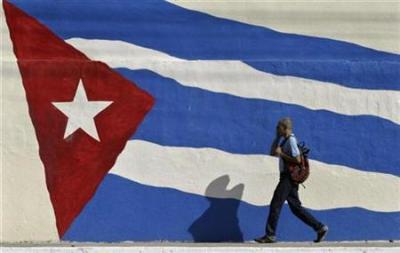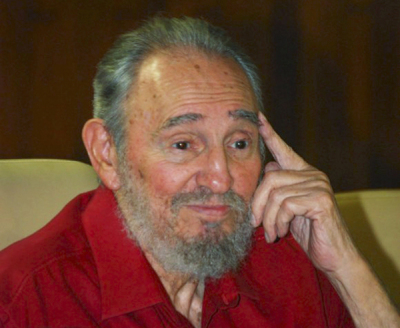Cuba Allows for Building of Catholic Church, a First Since 1959

For the first time since the 1959 Revolution, the Republic of Cuba will allow for a church to be constructed in the Communist state.
Cuba's Communist government has approved a permit for the building of a Catholic church building in Santiago de Cuba, the island's second largest city.
The demand for a new facility came after Hurricane Sandy destroyed an older building, reported Katherine Backler of the United Kingdom publication The Tablet, a Roman Catholic weekly.
"Catholics have been hearing Mass in the street since Hurricane Sandy destroyed their previous church, a termite-eaten wooden structure with a leaking tin roof," wrote Backler.
"Part of the new church will be built from the steel beams of the stage on which Pope Benedict XVI said Mass when he visited Havana in 2012."
According to Open Doors USA, about 57 percent of Cuba is Christian. A common complaint among Cuban Christians is that of constant government surveillance and infiltration.
Some have commented on the growing influence the Roman Catholic Church is having on the Communist country, especially since long-serving dictator Fidel Castro stepped down from power and his brother Raul took his place.
Last summer, the Brookings Institute featured apanel of experts in an event titled "The Role of the Catholic Church in Cuba Today."
The panelists were Orlando Márquez Hidalgo, editor and director of the Havana Archdiocese publication Palabra Nueva (or New Word), Eusebio Mujal-Leon, associate professor at Georgetown University, and Tom Quigley, former foreign policy advisor on Latin America and the Caribbean for the United States Conference of Catholic Bishops.

"Over the last two decades, the Catholic Church has come to occupy a unique space within Cuban society and has developed a growing dialogue with the Cuban state," reads a description of the event on Brookings' website.
"Actively interested in the ongoing economic reform process, the Archdiocese of Havana promotes debate regarding the role of the state and citizens in the economy and facilitates graduate training in business studies."
Others are more critical of the recent move by the government to allow for a church to be built, noting that the state remains repressive overall.
Pedro L. Rodriguez, executive director for the Miami, Florida-based Foundation for Human Rights in Cuba, told CP that he believed it was "a public relations scam directed to project Raul Castro as a true reformer."
"The Cuban government, it's mainly interested in attracting investors and [giving] the impression that the Cuban government, it's evolving into a less totalitarian experiment," said Rodriguez.
"Unfortunately, the Cuban Catholic Church has been very passive in regards to confronting, peacefully of course, the government."
According to Rodriguez, there have been thousands of documented arrests over the past couple years of dissidents in the country.
"These dissidents are usually arrested for a short period, two to three days, and then released 15 or 20 kilometers from their homes so they have to find their own means of transportation or simply walk back home," said Rodriguez.
This climate of repressiveness has been noted by Amnesty International also. In a press release from last September, Amnesty Special Adviser Javier Zúñiga noted the anti-dissent laws of the Communist state.
"The Cuban authorities seem to be using every trick in the book to punish those who dare to speak up about human rights," said Zúñiga.
"They are even using a law that punishes potential offences on account of 'antisocial behavior' to imprison political dissidents, independent journalists and government critics."
Dionisio Garcia Ibanez, the archbishop of Santiago de Cuba, told BBC in a recent interview that he had a positive outlook for the permit.
"I think it's not only about improving attitudes to the Catholic Church, but to churches in general," said Ibanez.
"I think there's a better understanding of religious affairs, so we hope it won't only be this church that we build. We hope there'll be more."
Construction for the new church building will be privately funded in part via St. Lawrence Parish in Tampa, Florida, many of whose members are Cuban exiles and their offspring.





























